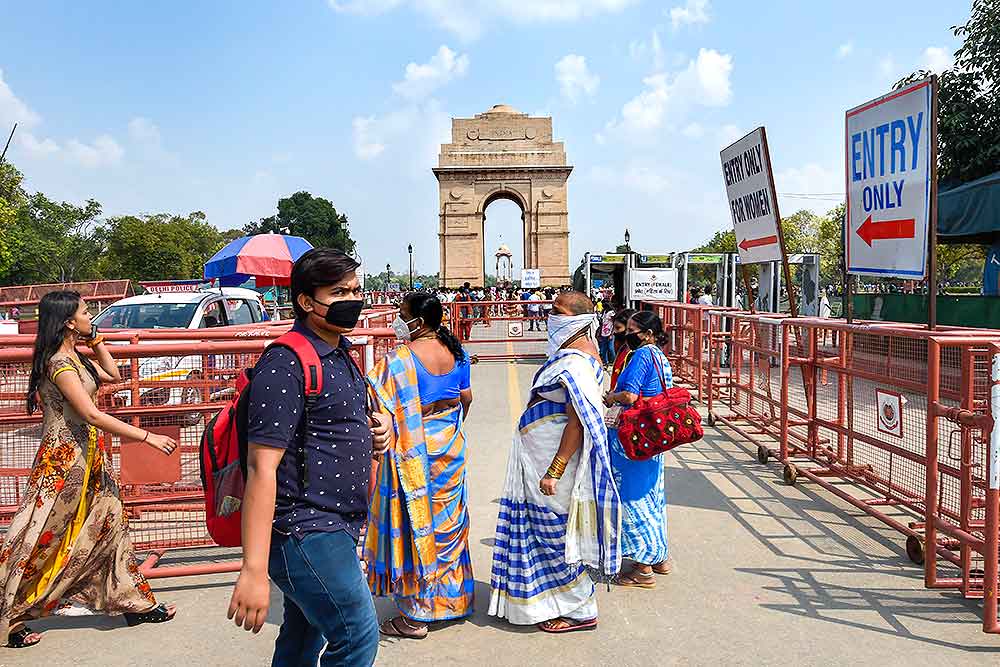India Medical News: COVID-19 Crisis Fast Spiraling Out Of Control, Shortage of Hospital Beds In New Delhi
Source: India Medical News Jun 12, 2020 4 years, 9 months, 3 weeks, 1 day, 7 hours, 54 minutes ago
India Medical News: The COVID-19 crisis is fast spiraling out of control in India. As of Friday (12
th June), the total number of COVID-19 infected cases has reached 298,291 while the total number dead from the coronavirus have reached 8,501. The total deemed to have recovered according to health authorities are 147,195 while about 11,134 are in critical care. On Thursday alone, a record of almost 10,000 new infections was reported.

Many medical professionals are claiming that these figures are all extremely low and inaccurate due to under reporting by government authorities and insufficient testing.
Out of a population of almost 1.38 billion people, only about 5.36 million COVID-19 tests have been conducted so far.
The capital of New Delhi with a population of 46 million people and home to some of India's highest concentration of hospitals, a pregnant woman's death after a frantic hunt for a sickbed was a worrying sign about the country's ability to cope with a wave of new coronavirus cases. She was turned away at about 8 public and private hospitals as
The easing restrictions easing in recent weeks have seen cases have shooting up, raising questions about whether authorities have done enough to avert catastrophe.
Half of Delhi's 8,200 hospital beds dedicated to COVID-19 patients are already full and officials are projecting more than half a million cases in the city alone by July 31.
Private hospitals in Delhi, a wider territory that encompasses New Delhi report that all of their sickbeds and ventilators are in use. Severely ill people have been turned away from public hospitals, too.
Utilizing the Twitter hashtag #SpeakUpDelhi, India's main opposition Congress party has compiled hospital horror stories from relatives of COVID-19 patients complaining of insufficient stretchers and oxygen, and fatal delays in care.
Staff and nurses at All India Institute of Medical Sciences, India's premier public hospital in Delhi, have threatened to go on strike over ever-lengthening shifts and crowded personal protective equipment changing rooms. And an AIIMS doctor resorted to an appeal on WhatsApp to seek plasma donations for patients.
The state government is now mulling over taking luxury hotels and sports stadiums to turn into field hospitals.
However some sites are controlled by the central government, and Delhi's efforts to reserve resources for its residents have already been hamstrung by interference from the center.
A week ago, Delhi Chief Minister Arvind Kejriwal, the city's top elected official and the head of the Aam Aadmi Party, announced that hospital beds for COVID-19 patients would be exclusively for Delhi residents and testing limited to those with symptoms of the disease.
However Modi's government, ruled by the rival Bharatiya Janata Party, strongly objected. The Delhi government set the rules aside on Monday, with Kejriwal tweeting that "making arrangements for treatment for people from across the country during the Covid-19 pandemic is a major challenge. But maybe it's God's will that we have to serve everyone in the country."
Kejri
wal's deputy, Manish Sisodia, then made the dire prediction of 550,000 cases in Delhi by the end of July.
Sisodia said at a news conference on Tuesday, "By July 15, we will have 2.25 lakh (225,000) cases for which 33,000 beds will be required. By July 31, 5.5 lakh (550,000) cases are expected and 80,000 beds will be required."
Many said the rules restricting hospital care to residents of Delhi weren't acceptable, particularly because of how many people across north India depend upon health facilities in the capital for anything beyond primary care.
A typical scene of people dying in Delhi and its outskirts because hospitals are full is a common occurrence.
The capital of New Delhi's predicament reflects India's fraught response to the pandemic, experts said, from delays with screening incoming travelers before the nationwide lockdown began in late March, to the lack of personal protective equipment for health workers, limited testing and denials of local transmission of the virus.
A major problem is looming as India enters the monsoon period, which brings malaria, dengue and a host of other mosquito and water-borne diseases.
With the exception of the cheap lethal hydroxychloroquine that has proven to show no efficacy against the COVID-19 and unproven Ayush therapies, India is not the least prepared for what is coming considering that a major percentage of its population is very vulnerable with underlying chronic diseases like diabetes, high-blood-pressure and cardiovascular problems.
For more on the latest
India Medical News, keep on logging to Thailand Medical News.
